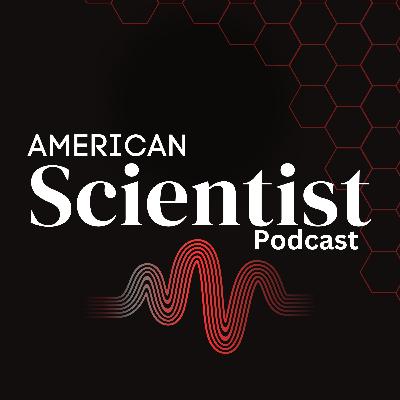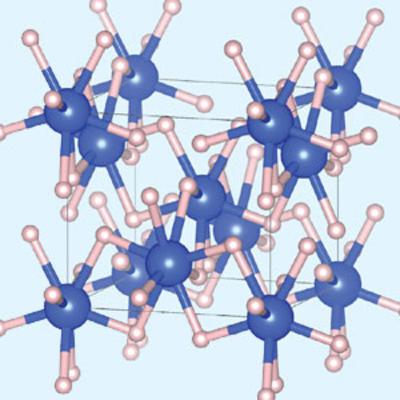Discover American Scientist Podcast
American Scientist Podcast

117 Episodes
Reverse
The American Scientist Podcast presents a new audio series, Wired for This, premiering on September 10, 2025. Wired for This offers an in-depth look at how we think, believe, change, and connect.In this bi-weekly limited series, we’ll examine the psychology of human behavior and neuroscience—what drives us forward, what holds us back, and how we navigate a world bursting with noise, contradiction, and complexity.Hosted by journalist and former neuroscientist Celia Ford, the show features interviews with scientists like Paul O’Keefe, whose research explores how psychological barriers influence the goals people pursue and their potential to reach them. We’ll also hear from behavioral science professors Emma Levine and Shereen Chaudhry on how to navigatedifficult conversations in high-stress environments.Jason Lodge and Phillip Lorenz-Spreen discuss how we consume, process, and share information, and how these processes are changing as our relationships with technology evolve.Each episode will challenge your thinking and offer fresh perspectives on the world around us.Tune into Wired for This every other Wednesday starting September 10, 2025, on Spotify, Apple Podcasts, iHeartRadio, and more. Follow the American Scientist Podcast today to stay updated on new episodes.________________________________________________________Wired for This is produced and edited by Nwabata Nnani and hosted by Celia Ford. American Scientist has been in publication since 1913 and is published by the nonprofit Sigma Xi, the Scientific Research Honor Society. The magazine focuses on producing narrative-driven features by scientists about their own peer-reviewed work. The publication also produces shorter-form staff-written news articles, as well as blogs, multimedia, and social media. See more at www.americanscientist.orgSubscribe to American Scientist: https://subscribe.americanscientist.org/AMS/?f=paid Music by Nat KeefeFollow us on social media: BlueskyFacebookInstagramLinkedIn
Chris Pickard is a materials scientist who employs what are called first principles methods—modeling techniques that work out material properties using fundamental rules such as quantum mechanics and Newton’s laws. Trained as a condensed matter physicist, he refocused on materials science just as interest in the field was exploding amid advancements in computation. Switching between empirical and theoretical sciences was good preparation for a field that works closely with experimentalists and testers, and that is itself becoming more empirical under the influence of machine learning. Pickard spoke with American Scientist associate editor Nicholas Gerbis about his early successes in studying hydrogen under high pressure, and his hopes for the future of his field. This interview has been edited for length and clarity.For more on this episode, visit https://www.americanscientist.org/article/first-principles-and-beyond. Unlock full access to the American Scientist magazine by subscribing today at https://subscribe.americanscientist.org/AMS/?f=paid
An interview with the president and founder of African Gong, Elizabeth Rasekoala. Her current book "Race and Sociocultaral Inclusion in Science Communication" brings together perspectives from science communicators from the global south. Host, Katie L. Burke, Digital Features Editor at American Scientist. Edited by Nwabata Nnani.
An interview with Virginia Tech environmental engineer, Linsey Marr. Her expertise in aerosols came to center stage as she and her colleagues worked for years to change policies based on faulty ideas about the transmission of the coronavirus. Host, Katie L. Burke, Digital Features Editor at American Scientist. Edited by Nwabata Nnani.
We'll hear from science communication leaders and podcasters on why podcasting is an important platform for Science. Interviews from Samir Honwad—professor at the University of Buffalo, Wendy Zuckerman—host of Science VS and 2022 Sigma Xi IFORE award winner, and Aaron Scott and Emily Kwong from NPR Short Wave as well as one of their guests Dr. Tiana Williams-Claussen from the Yurok Tribe. Host, Jordan Anderson.
Andrea "Annie" Kritcher discusses her and her team's achieved ignition, raising new hopes for fusion as a practical energy source. Host Corey S. Powell and American Scientist Magazine.
Cecilia Padilla-Iglesias is melding enviromental data and how these early populations interacted. Host Corey S. Powell and American Scientist Magazine.
The collision of the Great Resignation and long-standing gender inequities in medicine is heightening calls for improved family leave policies at American health care institutions. Host Jordan Anderson and American Scientist editor Katie L. Burke discuss caregiving support policies, bringing in perspectives from interviewees Christina Mangurian of UCSC, Jessica Lee of UCSC, and Neda Laiteerapong of University of Chicago.
On using synthetic biology to create next-generation diagnostics and therapeutics -- an interview with James J. Collins of Harvard and MIT, one of founders of the field.
How science fiction promotes science curiosity and why that matters. Hear from science communication practitioners and scholars Reyhaneh Maktoufi, Thomas DeFrantz, and Stephanie Castillo.
The first images from the James Webb Space Telescope (JWST) are already transforming our view of the universe. Hear from John Mather, Nobel Laureate and senior project scientist for JWST at NASA.
There are many ways organisms adapt to their environments, which can be seen both with the eye and in an organism's genetic sequence.
Researchers are working to understand the cellular composition and diversity of the brain, creating a catalog of cell types as well as seeking to plot the relationships, structures, and functions of those cell types.
Arrays of microneedles that could replace injections have been the subject of research for some 50 years, but have not yet been commercially successful. A new type of high-resolution 3D printing could change that.
As entomologist Suzanne W.T. Batra has long argued, there are far better pollinator bees than they honeybee. Hear an interview with the researcher whose colleagues at the USDA named a research conference "Batrafest" to honor her.
Liquid-filled scaffolds that are not enclosed, but don’t leak? A team at Lawrence Livermore National Laboratory came with a 3D-printed unit with an internal structure that water clings to and flows into... even though it has holes.
Rewards and pitfalls to communicating science on social media: a discussion with Michael Xenos at the University of Wisconsin-Madison, BlackInNeuro and SciComm Collective's Danielle Nadin, and Samantha Yammine, also known on the internet as Science Sam.
Astrophysicist Hakeem Oluseyi discusses his memoir, A Quantum Life: My Unlikely Journey from the Streets to the Stars.
Structural problems in STEM workplaces, and the importance of inclusivity in institutions -- a conversation with Shirley Malcom.
Structural problems in STEM workplaces, and the importance of inclusivity in institutions -- a conversation with Shirley Malcom.
Comments
 United States
United States




